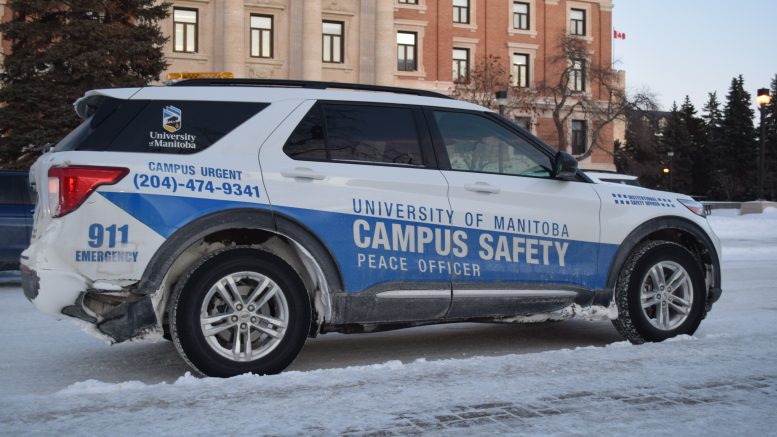The U of M security statistics for the Fort Garry and Bannatyne campuses for December 2024 are now accessible.
The figures have been published in the latest edition of Security Services Monthly, the university’s newsletter that offers insight into its Security Services’s daily operations.
In December 2024, Security Services responded to a total of 55 suspicious calls, completed 46 safe walks and 57 safe rides to ensure the safety of individuals moving across campus.
Security Services also responded to nine medical emergencies, three calls to parking services and attended to 198 unscheduled access requests from students and staff needing building or room access outside regular hours.
The report included responses to 133 alarms, including fire, elevator, code blue, emergency phones and panic alarms.
At the Fort Garry campus, 25 incidents were reported across various categories. These included seven incidents of theft, ranging from stolen personal items to cash and a vehicle.
There were five mischief-related incidents, including vandalized vehicles, graffiti and a discharged fire extinguisher.
Security Services also responded to one case of threatening behaviour and one instance of “hate propaganda” involving “vandalized decorations,” per the report.
Additionally, six vehicle collisions and one case of careless driving were reported at the Fort Garry campus.
There were four City of Winnipeg by-law violations, including a safety hazard, a noise disturbance and “reports of cannabis use” and smoking in unauthorized areas.
At the Bannatyne campus, Security Services responded to five incidents of theft and mischief. These included an attempted equipment theft, a vehicle break-in and vandalized washrooms and walls. Security Services also addressed one sexual offences case involving an “indecent act” at the Brodie Centre.
A vaping violation was also recorded against a City of Winnipeg by-law.
Alongside these security updates, the university reminds the community to stay vigilant against scams. The Canada Revenue Agency (CRA) will never request payments via e-transfer, cryptocurrency, prepaid credit cards or gift cards. They will not use aggressive language, threaten arrest or deportation. Stay alert and report any suspicious communications.



